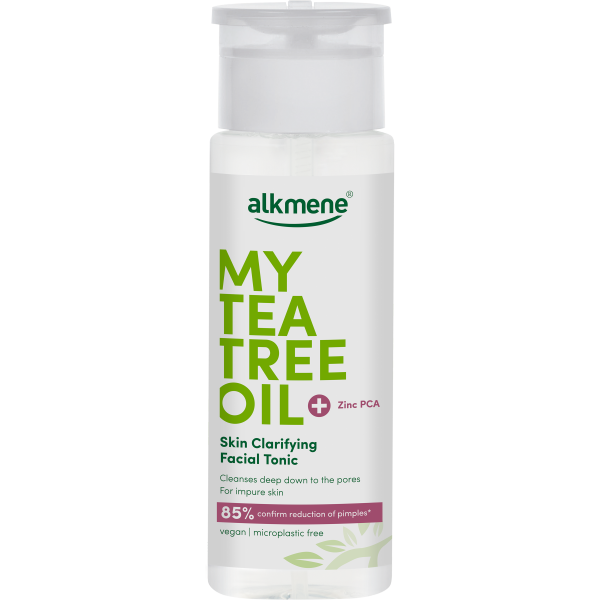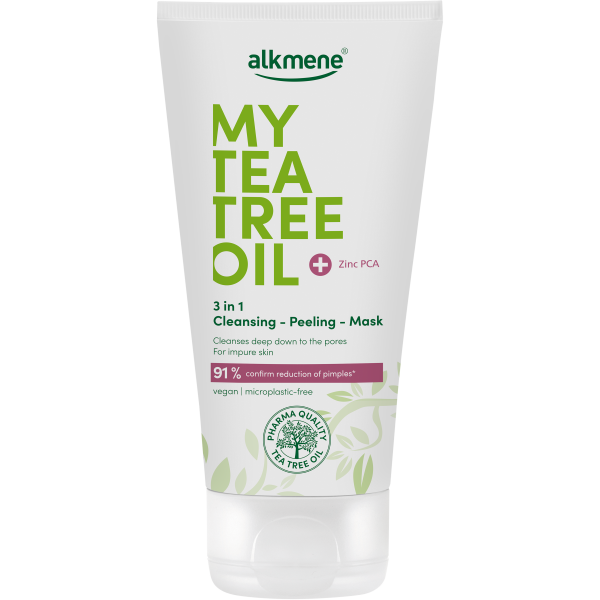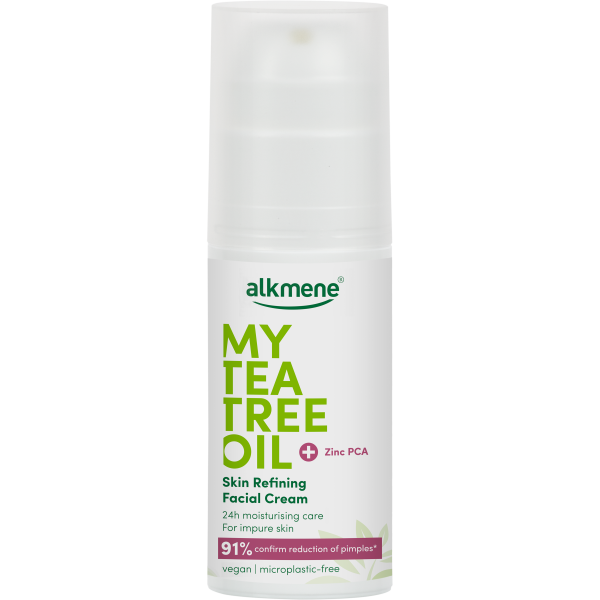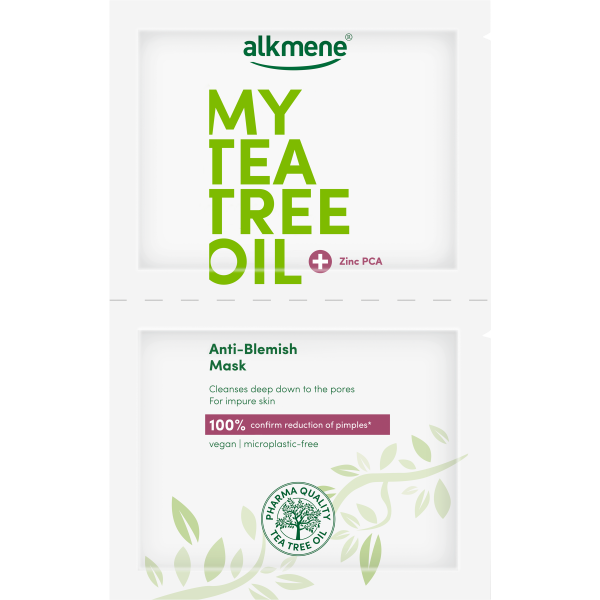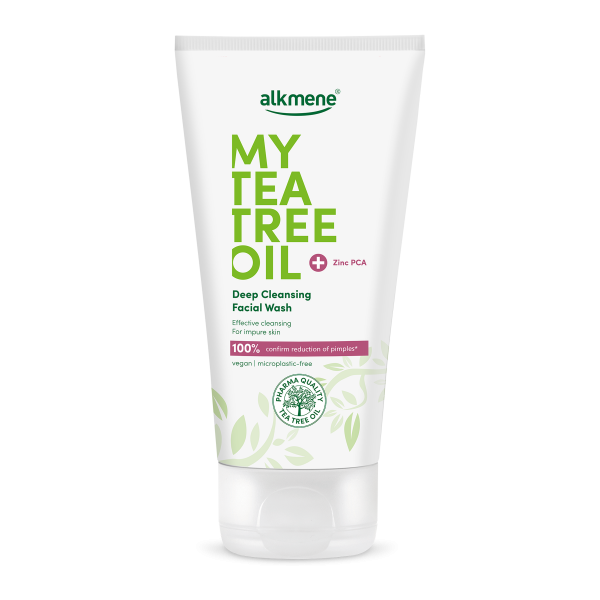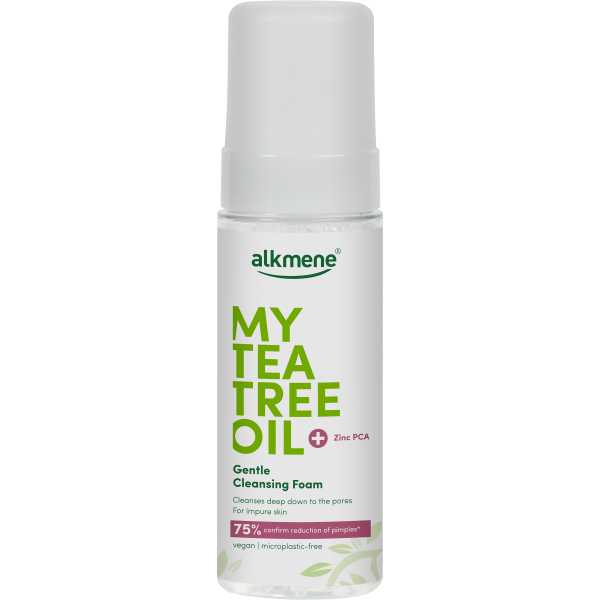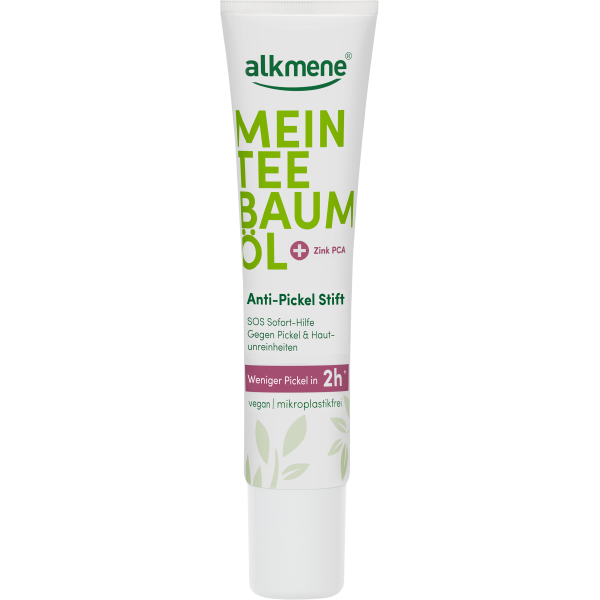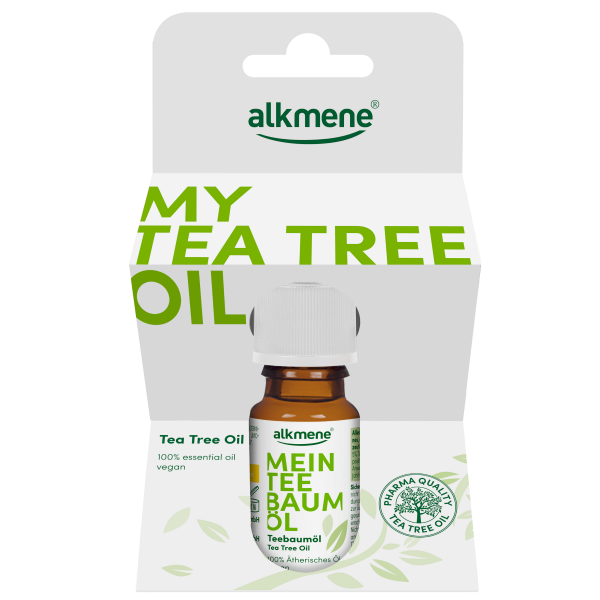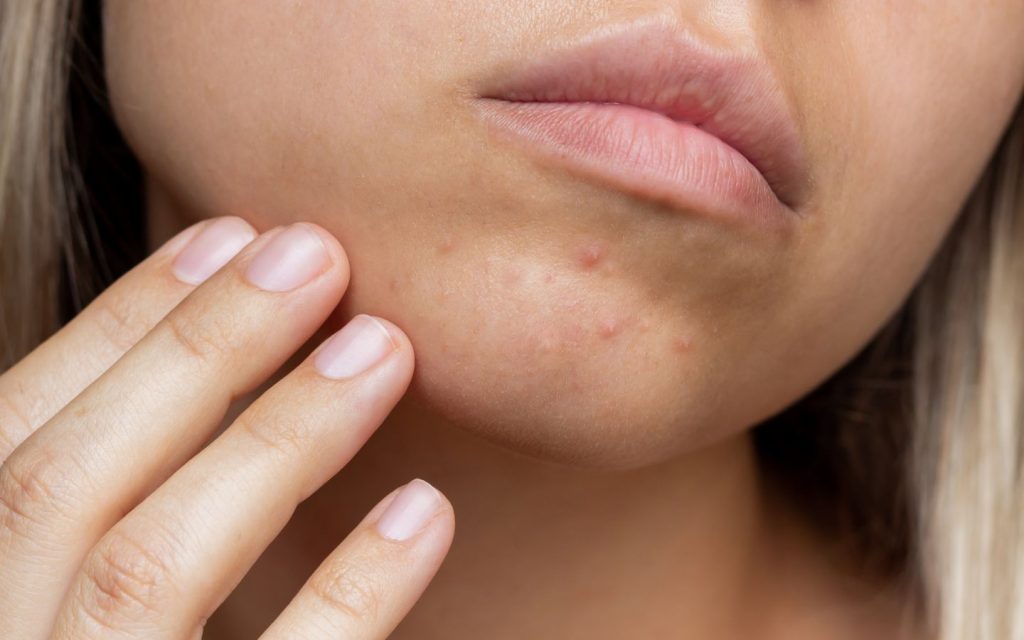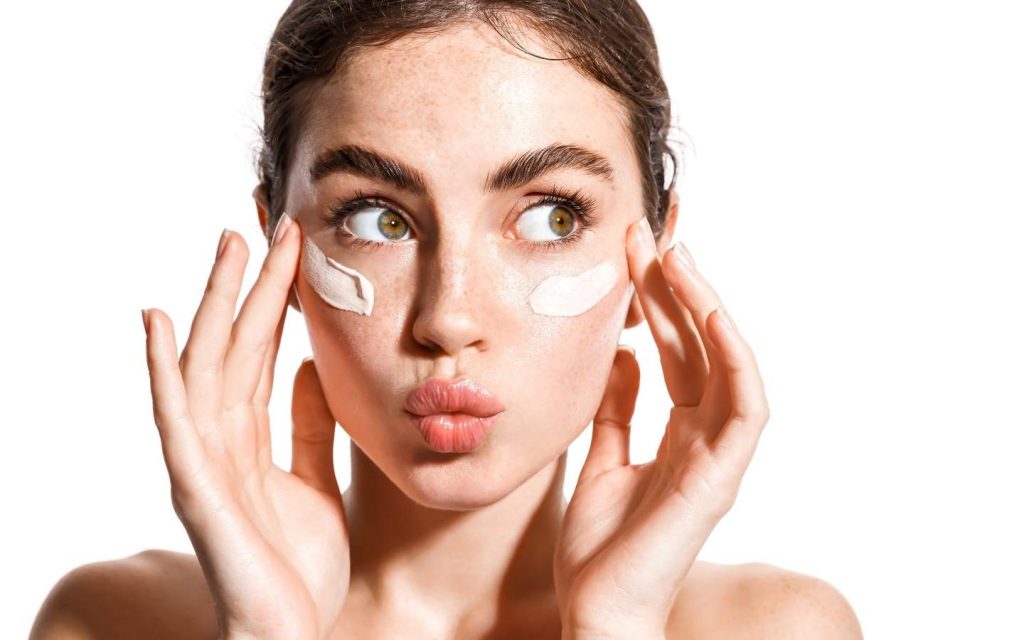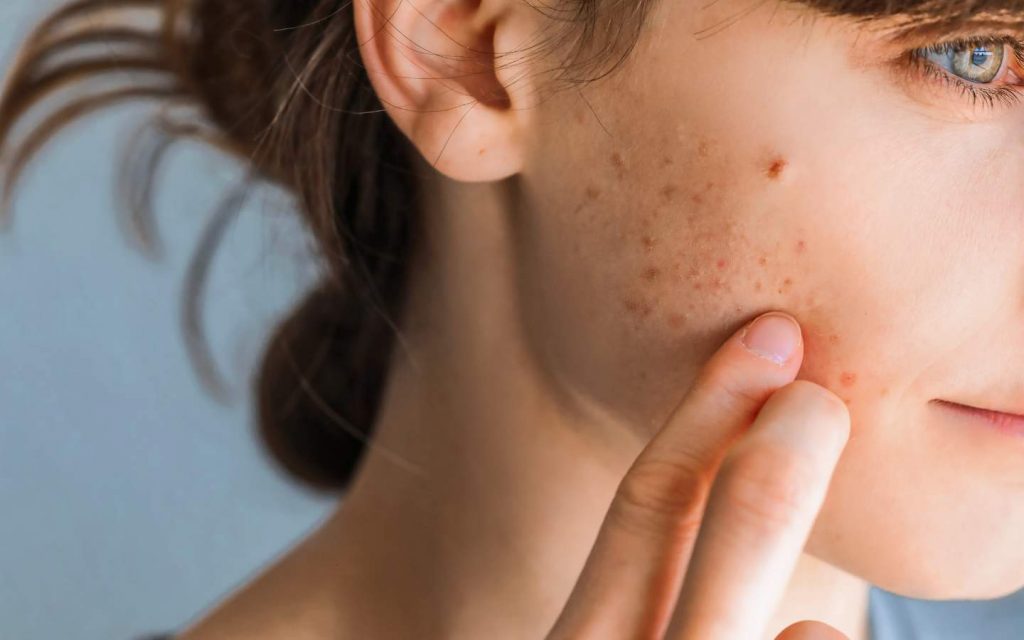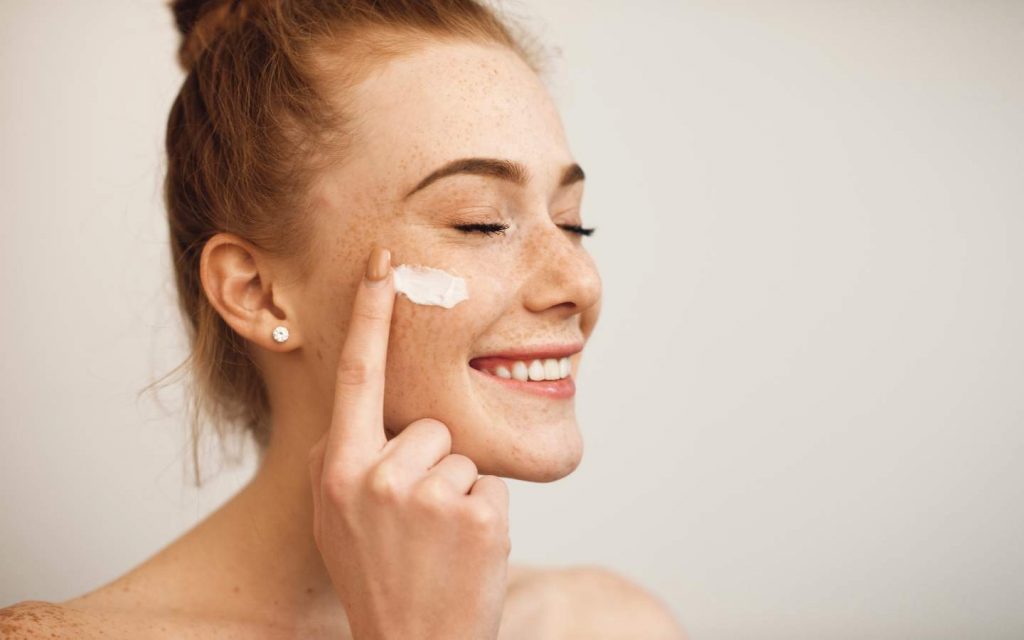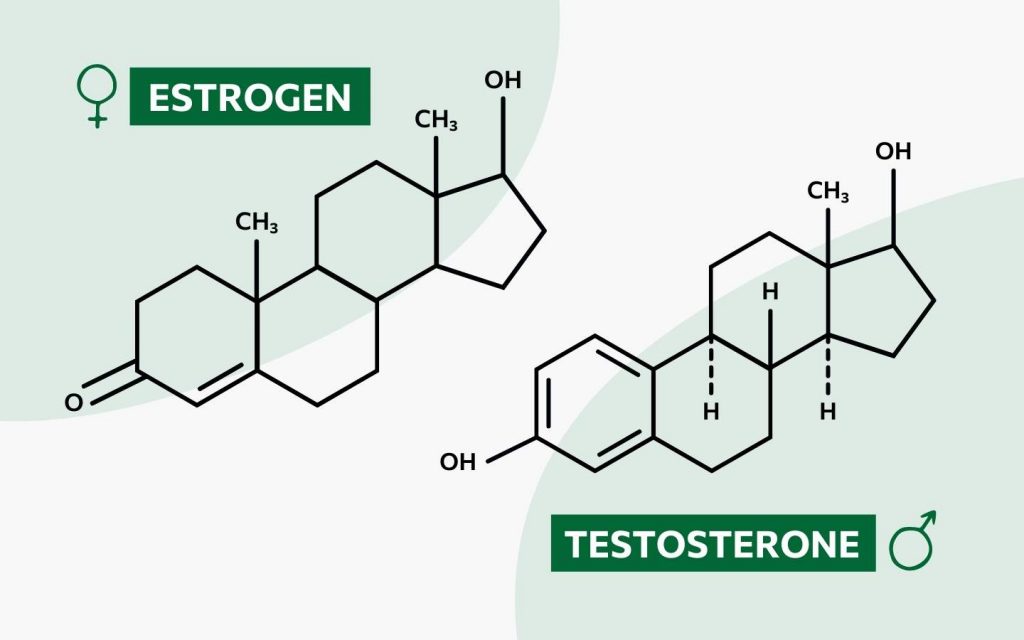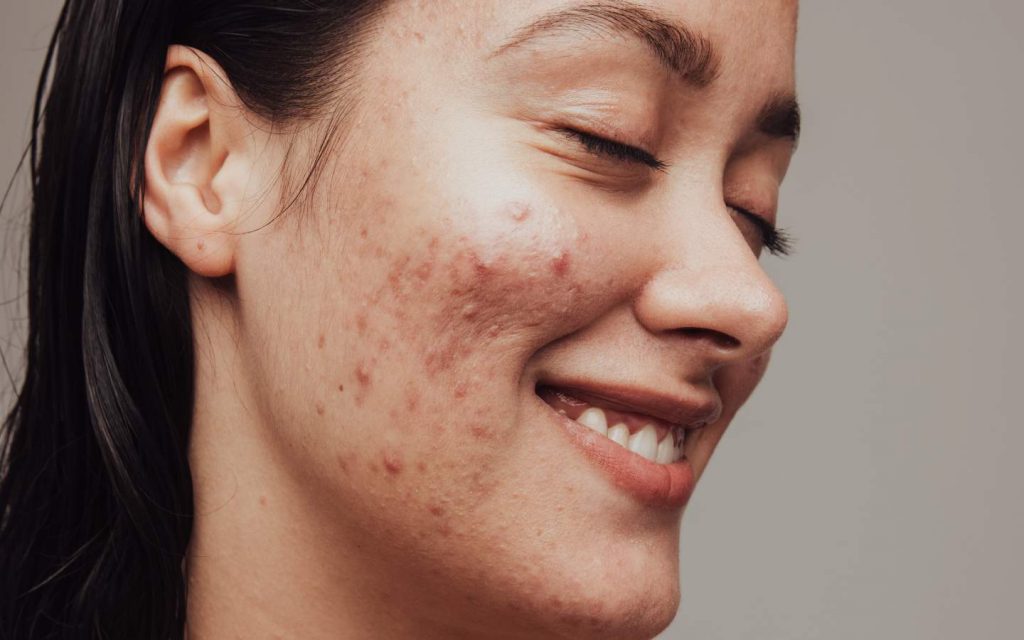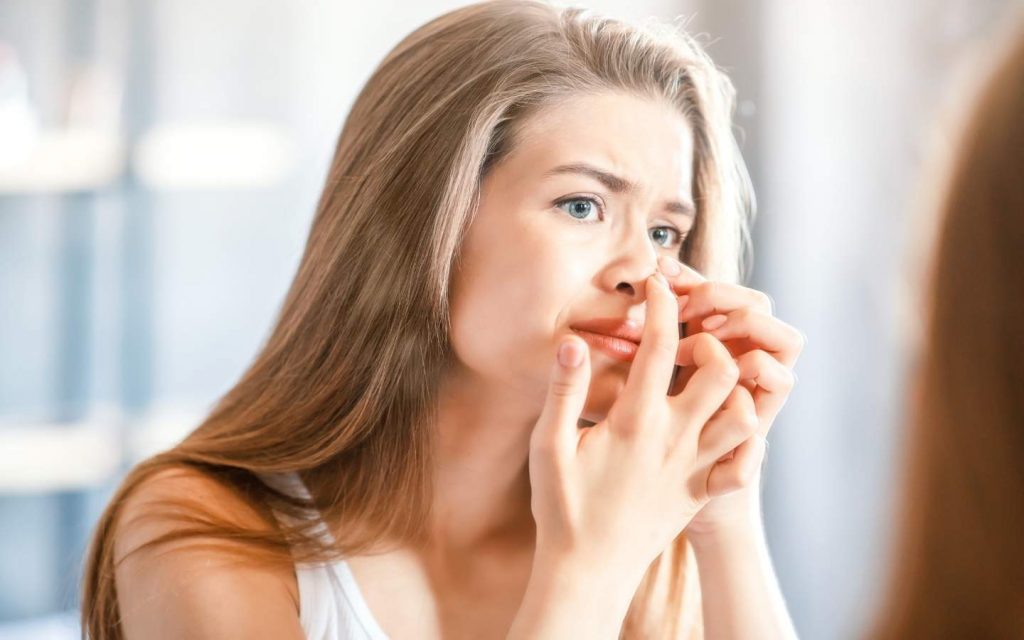


This article has been reviewed by:
Alexandra Beck
Cosmetician
No one wants them and yet everyone has to struggle with them – the unloved pimples. It doesn’t matter whether they are a permanent problem or only appear from time to time at the most inopportune moments. What we are all most interested in is how to get rid of pimples. In the following, you will learn how the all-rounder tea tree oil can help and work against pimples. However, before going into it, two basic questions should be clarified first: What are pimples anyway? And how do they develop?
What are pimples?
What are colloquially called pimples are small inflamed skin elevations filled with pus. These small pus blisters are called pustules and are consequences of excessive keratinization of the skin. Similar skin inflammations are reddened, roundish skin elevations called papules. In addition, there are comedones, which are known as blackheads. These are closed pores. If the formation of pustules or pimples, papules and blackheads is very severe, the skin disease is called acne.
If you want to learn more about the different skin impurities click here.
The appearance of pimples and pustules can have very different reasons. Hormone fluctuations, the wrong diet, stress or even the wrong skin care. But regardless of the cause, the development of the unwanted skin inflammations is always the same.
If you want to learn more about the causes of pimples and acne, you can read this article.
How do pimples appear?
Our skin produces its own protective film every day so that it does not dry out and is supplied with sufficient moisture. This natural skin oil is called sebum and flows through the pores to the surface of the skin. In addition, other substances are also secreted through our skin, such as sweat or dead skin cells. What is actually a fascinating protective measure of our own body can, however, also become a burden in the case of sebum overproduction.
If, for various reasons, there is increased sebum production and increased horny cell production (hyperkeratosis), this can lead to our pores becoming clogged. In this case, dead skin cells close the pores by forming a kind of horny plug at the follicle exit. This results in closed comedones (blackheads), which become visible as bright, pin-sized bumps. These initially harmless blackheads can also regress on their own, although this happens in the rarest of cases. This is because the comedones form a very good breeding ground for bacteria and can thus result in inflamed skin lesions. In addition, the pressure inside the pore caused by the sebum buildup can also be a factor that drives inflammation. This can ultimately lead to pus formation and skin irritation – pimples develop.
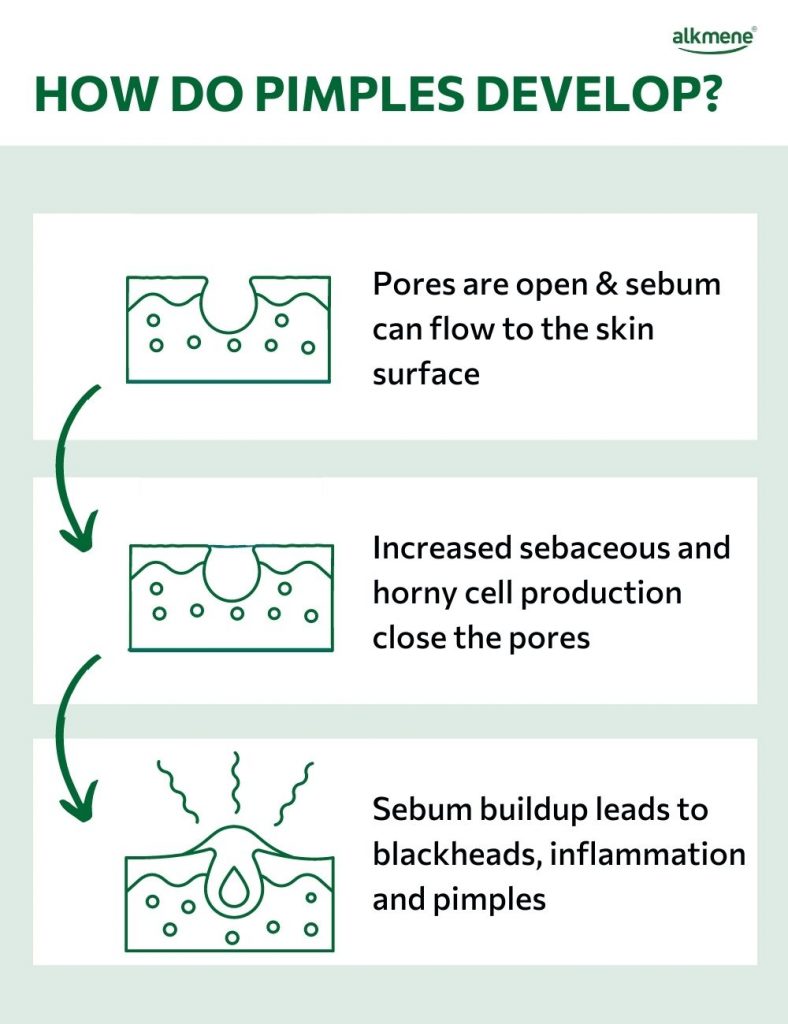
Why can tea tree oil help against pimples?
Tea tree oil is known as an all-rounder or Australian miracle cure. The essential oil has also been used for several centuries to treat wounds or against colds. So the question is actually not whether tea tree oil can help against pimples, but how it can help against pimples.

By the way, tea tree oil is mainly obtained by steam distillation from the leaves of Melaleuca alternifolia. Essential oils are namely produced by plants as a protective mechanism against natural enemies such as bacteria or fungi.
Three unbeatable arguments of tea tree oil are clearly the antibacterial, antifungal and anti-inflammatory effect. Antifungal means that tea tree oil is effective against fungal infections. In connection with pimples, however, it is particularly relevant that the essential oil with a high concentration of terpenes has an inhibitory effect against a variety of bacteria. Tea tree oil not only has a broad spectrum of action, but even inhibits the growth of problem germs. Thus, tea tree oil can help to reduce bacterial growth in the development of pimples and kill bacteria.
You can find our MY TEA TREE OIL all-rounder tea tree oil here.

By the way: By damaging bacteria and fungi, disinfecting and cleansing effects of tea tree oil set in. They have an anti-inflammatory effect and can thus support the healing of pimples.
Also the beautician Mrs. Alexandra Beck trusts in the effect of tea tree oil against pimples:
“The positive properties of naturally pure tea tree oil and its diverse application possibilities against the described disturbances in the (cell) metabolism have been handed down for centuries. Products with tea tree oil are quickly absorbed, have an anti-inflammatory and cleansing effect, the pores close (due to astringent ingredients), skin impurities, redness and pimples are reduced, the skin becomes soft and supple. According to my experience, the skin texture improves significantly with the use of MY TEA TREE OIL products. Attention: the pure tea tree oil should be used with caution and best tested for compatibility on a small area on the inside of the arm before use.”
How does tea tree oil work against pimples?
But how exactly does tea tree oil work against pimples? The antibacterial effect of essential oils can be attributed to various mechanisms.
Tea tree oil contains the terpenoid terpinen-4-ol, which penetrates and damages bacteria. For example, tea tree oil can affect the cellular respiration of bacteria and damage their cell membrane. Due to the increased permeability (permeability) of the cell membrane, the membrane can no longer maintain its functions, allowing vital substances to leak out of the cell. As a result, the bacterial cells die. This effect of tea tree oil on the cell membrane applies to both bacterial cells and skin cells, which is why tea tree oil can also cause skin irritation if used incorrectly.

Important: Tea tree oil must not be applied to open wounds, especially not undiluted. For scratched pimples or pimple wounds, you should therefore wait until the wound is closed. Subsequently, tea tree oil in diluted form can have a disinfecting effect and thus support healing.
In addition, the antibacterial and sensitizing property of tea tree oil counteracts hyperkeratosis (increased keratinization), which allows the sebum to drain better. The hornification or clogging of the follicles is reduced by the tea tree oil, which counteracts the formation of comedones as a bacterial breeding ground. The tea tree oil does not stop the production of sebum, but ensures that not too much sebum accumulates on the skin. This regulating effect can counteract the formation of pimples, so tea tree oil can also be used preventively against pimples and skin impurities.
![]()
